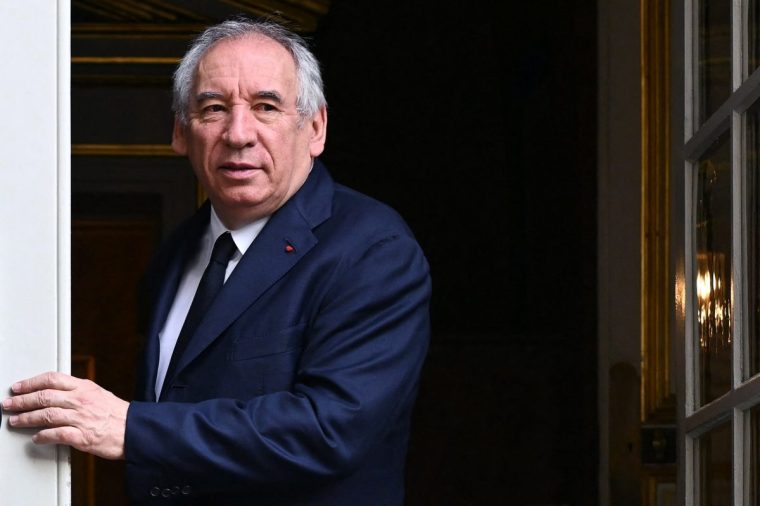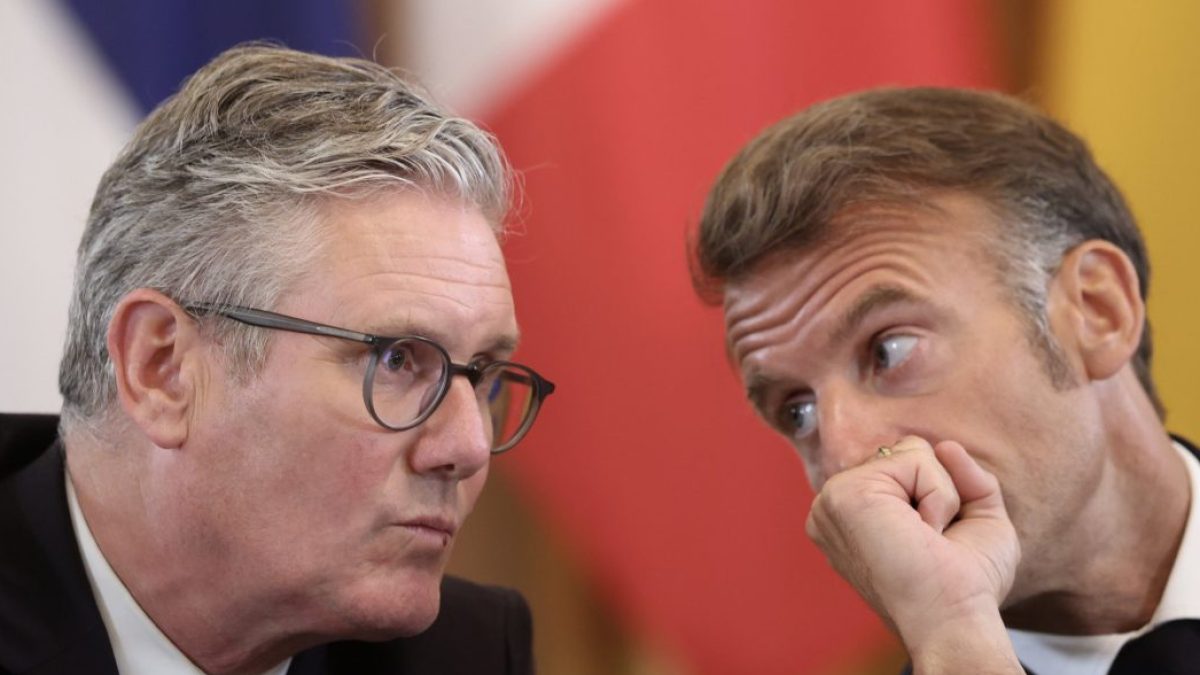Prime Minister Francois Bayrou is a ‘dead man walking’ in confidence vote, and President Emmanuel Macron is imperilled
The French Revolution perfected the art of swift political justice with the guillotine.
Almost two and a half centuries on, the blade is parliamentary rather than steel, but François Bayrou is about to feel its edge. On Monday, France’s embattled prime minister faces a confidence vote at the National Assembly that looks less like democratic ritual than an execution by consent. His unpopular plan to carve €44 billion (£38 billion) from France’s swollen budget has left him trussed on the tumbrel – with President Emmanuel Macron lurching towards yet another government crisis.
Bayrou has been in politics long enough to know when the game is up. At 74, the veteran centrist argues his budget savings – part tax rises, part spending cuts – will calm markets and show France can face up to its swelling public debt. Instead, they have united the National Assembly’s warring tribes against him. Allies privately concede the prime minister is finished. “He’s over,” sighed one deputy this week. “He’s a dead man walking.”
New FeatureIn ShortQuick Stories. Same trusted journalism.
Macron, watching as yet another government collapses beneath him, is now preparing for his fifth prime minister since 2024. Bayrou’s predecessor, former EU Brexit negotiator Michel Barnier, was toppled in December over his own budget plans.
The churn evokes memories of the unstable Fourth Republic, which cycled through governments at a dizzying pace before Charles de Gaulle’s 1958 constitution promised stability. Today the Fifth Republic, supposedly presidential and decisive, looks paralysed.
The arithmetic is brutal. Macron’s centrist bloc, Ensemble, loosely allied with the conservative LR party, is far from commanding a majority. Jean-Luc Mélenchon’s far left has no interest in compromise, and far-right leader Marine Le Pen now also wants Bayrou gone, calculating that fresh elections would only strengthen her hand. Both seem to be channelling the tricoteuses, the women who sat knitting and jeering by the guillotine during the Reign of Terror.
As for the others, the Socialists dangle the prospect of an alternative government, but only on softer terms – halving Bayrou’s proposed savings.
Markets watching this play out have begun to fret. French ten-year yields have risen above 3.5 per cent, their highest in over a decade. In a country with debt worth 114 per cent of GDP, and a budget deficit at 5.4 per cent, the trajectory matters. Debt servicing is now France’s single biggest line item, forecast to hit €66 billion (£57 billion) this year, more than defence or education.
 France’s Prime Minister Francois Bayrou is said to be a ‘dead man walking’ in confidence vote on budget cuts (Photo: Bertrand Guay/Getty)
France’s Prime Minister Francois Bayrou is said to be a ‘dead man walking’ in confidence vote on budget cuts (Photo: Bertrand Guay/Getty)
The turmoil in Paris carries uncomfortable echoes for Britain. French ten-year bond yields, now at 3.5 per cent, remain below the UK’s 4.7 per cent, but Bayrou said markets can turn fast, invoking the six-week debacle of former prime minister Liz Truss in 2022. His ministers have suggested France might even need an IMF bailout, a humiliation the UK was once forced into.
What then can Macron do? Dissolving parliament is risky. When he tried in June 2024, his minority shrank further. Polls suggest another vote today would simply yield another hung chamber, with Le Pen’s party even stronger. Naming a Socialist premier might stabilise matters temporarily, but at the price of reversing Macron’s signature reforms – notably on pensions. Another centrist, like Sébastien Lecornu, the defence minister, or Gérald Darmanin, the justice minister, would run into the same deadlock as Bayrou.
That leaves muddling through: rolling over the 2025 budget or forcing through a watered-down text by decree. French institutions allow such expedients, but they solve little. The sense of drift deepens. Protests are already planned for next Wednesday and the week after. A grassroots “Bloquons Tout” (“Block Everything”) movement, reminiscent of the Gilets Jaunes (Yellow Vests), is mobilising against Bayrou’s plans to scrap public holidays and freeze benefits.
Bayrou insists he is acting out of principle, not pique. A former classics teacher, he has long warned of France’s “Himalayan debt”. He compares himself to France’s Henry IV, the pragmatic king who reconciled warring factions. Last month, he even launched a YouTube series and a podcast to try to win over the French public.
Critics mutter about vanity in scuppering his government without actually enacting the tough decisions needed. There is also the lure of the Elysée: three times a presidential candidate, Bayrou seems ready for one last tilt. By falling on the sword of fiscal rectitude, he hopes to be remembered as the prophet who told uncomfortable truths while others ducked responsibility.
Yet the French electorate is angry and has little appetite for austerity. Both left and right promise to cut retirement ages further, not raise them. Public spending amounts to 57 per cent of GDP, the highest in the EU. Any attempt to trim it triggers revolt. Bayrou’s idea of abolishing public holidays was especially toxic. Polls suggest fewer than one in five voters view him favourably. Even Macron’s own approval rating, at 15 per cent, is among the lowest of any Fifth-Republic president; two-thirds of voters want him to resign.
France’s malaise matters beyond Paris. As Europe grapples with war in Ukraine, American unpredictability, and sluggish growth, it needs its second-largest economy to be credible. Instead, France is importing instability into the euro zone. The parallel with Italy – once mocked as the continent’s fiscal basket case – is unnerving. Italy has managed primary surpluses for much of the past three decades; France has done so once. That role reversal alarms Berlin.
 French government turmoil could weaken the European alliance behind Ukraine (Photo: Maksym Kishka/Reuters)
French government turmoil could weaken the European alliance behind Ukraine (Photo: Maksym Kishka/Reuters)
The turmoil also weakens Europe’s diplomatic heft. The UK and France have in recent years drawn closer on defence, partly because neither can afford to act alone. Macron is the co-leader, with Keir Starmer, of the informal alliance behind Ukraine and on Thursday hosted President Volodymyr Zelensky in Paris along with more than 30 other leaders of the so-called coalition of the willing. If political paralysis in Paris delays the promised rise in French military spending, that will complicate the Anglo-French bargain that underpins European security at a time of Russian aggression and doubts about Washington’s commitment.
The deeper story is political. Macron came to power in 2017 promising to transcend France’s left-right divide with technocratic centrism. That strategy now lies in ruins. The traditional parties may have shrunk, but politicians have regrouped in more radical blocs. The result is a fragmented assembly where no one can govern. Compromise, the daily bread of parliamentary systems elsewhere in Europe, is seen in France as betrayal.
The French like to believe their institutions are solid. For nearly seven decades, presidents have served out their terms, no matter how unpopular. But today, even Macron’s resignation is openly debated. It remains unlikely: quitting would neither resolve the stalemate nor suit his temperament. Yet the fact that it is discussed at all shows how far France’s politics have deteriorated.
Bayrou, invoking Cassandra, may yet be vindicated. But the cost of ignoring him will not be borne by him alone. It will be paid by Macron, by France’s citizens, and its European partners.

